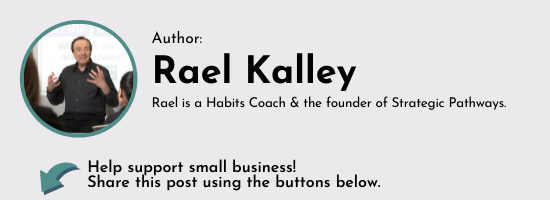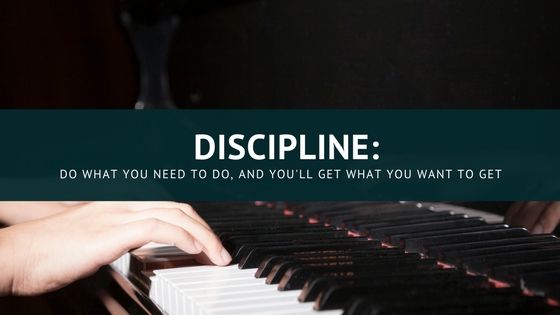Developing discipline is something lots of people ask me about.
I am a reader and have been a reader for as long as I can remember. In fact, I can’t remember a single day in my life that has not included an hour or more spent reading.
It is my hobby, my passion, my principal source of entertainment and, arguably, my addiction.
And so, it came as somewhat of a surprise to me recently when a client commented to me she wished she had my discipline for reading.
She had been in my office two weeks earlier and had mentioned the title of a book a friend had suggested she would benefit from reading.
Her comment to me about my discipline for reading came about when I mentioned I had purchased the book, read it and found it to be chock full of interesting ideas.
Discipline is a word that comes up quite frequently in conversations with clients and I would like to share with you my interpretation of what this word means.
What is Discipline?
Among the many lines used to define the word discipline, Dictionary.com includes the following: activity, exercise, or a regimen that develops or improves a skill; training.
When people tell me they lack discipline, I assume they mean they are unwilling to stick with a regimen as described above.
The word discipline is an enormously important one as it directly impacts the results we incur in our lives. I would like to introduce to you my definition of that extremely important word.
Discipline means: doing what we know we need to – or must – do at those times when we really don’t want to do it.
It also means not doing what we know we shouldn’t be doing when we really want to do it.
These practices determine with great precision what our odds of success are each time we set out to achieve an objective.
In other words, discipline is the degree to which we do – or don’t – allow our emotions to influence the decisions we make and consequently, the actions we take.
Discipline is about ownership of our emotions.
And it is about how we choose the extent to which the emotions we feel in the present will affect the results we experience in the future.
To the person who loves going to the gym and working out, who can’t wait to get there as often as possible, and who has to force themselves to leave, the word discipline is not applicable anymore than it is to someone like me – a lifelong, committed and passionate reader.
Discipline is about importance
We only do what is important to us in the moment, and we determine what is important simply by how we feel in that moment.
If we truly believe we lack discipline, and the lack of discipline that is preventing us from achieving much of what we wish to achieve, then it is time to take a long, hard, cold, clinical look at the extent to which we have conditioned ourselves to allow our future happiness to be determined by our present feelings.
And to remind ourselves that while our emotions may influence our actions, they absolutely do not control them.
When we find ourselves wanting to veg out on the couch rather than going to the gym and working out, we are fully capable of dragging ourselves off the couch and into the gym.
If it’s important enough, you will always find a way, and if not, well, you will always find an excuse.
Till we read again.


